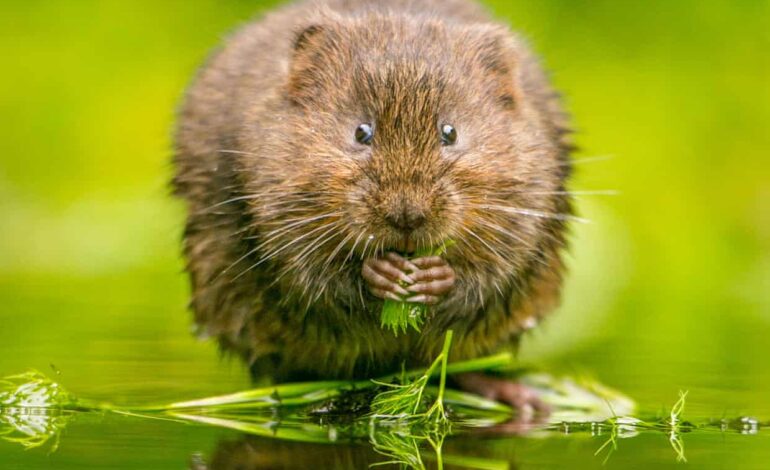Wildlife Habitats at Risk as England Eases Riverbank Protections

Concerns are mounting over the loss of vital riverside habitats in England, as campaigners highlight the impact of relaxed post-Brexit farming regulations. According to new analysis by the Wildlife Trusts, over 400 square km of these habitats, crucial for species such as water voles, may have been lost since the United Kingdom departed from the European Union in 2020.
Under the previous common agricultural policy (CAP), which provided subsidies to farmers while the UK was a member of the EU, there were requirements to maintain a 2-metre buffer between agricultural fields and riverbanks. With the UK’s exit from the CAP, farmers now have the flexibility to cultivate land closer to waterways, potentially increasing their income from previously unprofitable areas. This change raises alarms among environmental advocates, as these riverbanks serve not only as habitats for wildlife but also as natural filters that mitigate pollution entering waterways.
The Guardian recently reported that the UK government is utilizing its post-Brexit status to weaken essential environmental protections, which contradicts the Labour Party’s manifesto commitment to uphold such standards. In light of these developments, the Wildlife Trusts have urged the government to implement targets for riverbank restoration initiatives to enhance the health of the country’s rivers.
In a statement to ministers, the Wildlife Trusts pointed out that the removal of cross-compliance requirements has likely exacerbated the degradation of riverbanks in recent years. They noted, “The absence of wilder banks has significant effects on the form and function of rivers. Eroded soil and farm chemicals flow straight into the channel, while exposed waterways heat up in the summer, reaching temperatures that can be fatal for fish and aquatic insects.”
The erosion of riverbanks and wetlands is not a new phenomenon. For instance, on the River Swale in Yorkshire, the Wildlife Trusts discovered that over half of the historical wetland habitat has vanished since the early 19th century, with much of the remaining area severely fragmented. This loss has driven several plant species, including bog sedge and oblong-leaved sundew, to local extinction.
In response to these challenges, the Devon Wildlife Trust is actively working on a significant riverbank restoration project at the Halsdon nature reserve, where they have identified substantial soil loss due to erosion. Factors contributing to this degradation include increased agricultural intensification and urban development upstream.
Activists argue that addressing the changes in post-Brexit agricultural law is essential for any effective rescue plan for England’s waterways. A spokesperson from the Department for Environment, Food & Rural Affairs stated that the government is exploring funding opportunities for farmers to restore riverbanks. They added, “Ministers are considering how the reformed SFI scheme can best be spent to clean up our waterways, including buffer strips.”
Ali Morse, water policy manager at the Wildlife Trusts, emphasized the urgency of the situation. “Rivers are polluted by a cocktail of chemicals, old and new, and excess nutrients from farming and sewage,” she explained. “Record-low spring flows and summer drought have concentrated pollution levels, leaving wildlife under severe pressure. As a society, we exacerbate the problem by extracting too much water from rivers for our own use. It’s time we invested in recovery.”
According to Morse, restoring wilder riverbanks could significantly reduce pollution entering waterways and revive essential habitats, allowing wildlife to flourish once again. She envisions a future where communities can enjoy picnics by the riverside under trees, observing the vibrant wildlife, including the flash of a kingfisher or the splash of a water vole. The call to action is clear: without immediate intervention, England’s riverbank habitats may face irreversible decline.






